Midcomp webinar illustrates challenges, trends and opportunities during and after COVID-19
This article originally appeared in Sign Africa.
Midcomp hosted a free webinar on 29 April that focused on current and future trends for printing and cutting applications during and after COVID-19.
The webinar was tailored around how customers can diversify their offerings, and add value, so they ultimately sell on value, not on price. The company believes this mindset will build customer relationships, make you more profitable as well as relevant.
Director and Zünd Product Manager Sean Greer was the main speaker, and addressed the challenges businesses have experienced. ‘Aside from a struggling economy and rolling blackouts which we experience all too often, COVID-19 has not made things easier, if anything it has accelerated the rate of change. However, absolutely anything is possible, what with the technology and tools that are available. With that in mind, we must strive to be agile, innovate and think in terms of unlimited possibilities.’
‘To overcome adversity we must choose the best path,’ said Greer. ‘Research and adapt, diversify, innovate, don’t put all your eggs in one basket and don’t focus on one big customer when you can focus on many smaller ones.’
Greer outlined mega trends such as:
– The importance and impacts of sustainability – 73% of Millennials are willing to spend more on a product if it comes from a sustainable brand.
– Globalisation: by 2025, half the Fortune 500 companies will be headquartered in today’s emerging markets – how or where the companies design, sell or manufacture products will be about thinking globally, acting locally and delivering promptly.
– Ecosystems – digital platforms are transforming markets, so many platforms are now integrating multiple service providers, including online stores, the procurement of raw materials, production facilities, warehousing, couriers and logistics.
Global trends:
– Print-on-demand: digital printing is driving on-demand printing, so it is critical for offline PSPs to start growing their online business.
– Personalisation: the value created helps differentiate between the mass produced prints, which will increase your brand value and customer loyalty.
– Same day delivery: digital printing has driven lead times down from weeks to days and together with the growth of online orders from days to hours.
– Local production: the demand for personalisation and same day delivery is driving local production that reduces logistics costs and delivery time, while boosting the local economy.
– Vertical integration: consolidation in the printing industry will continue moving from horizontal mergers – forming larger and more global companies – to vertical mergers focused around the implementation of end-to-end strategy. Vertical consolidation will occur not only from a capacity point of view but also on many levels from equipment manufacture to print providers offering end-to-end solutions from design to production.
– Social media is boosting value and transparency for companies. Consumers are not buying products based only on quality and price, but based on a company’s values and transparency. There’s also a need for suppliers to provide transformational solutions, i.e how can your product or services transform or add value to your customer’s business? So bring your values, transparencies and promise of transformation to the forefront. In doing so, you will provide your customers and end users with all that they need to evaluate your actions, and will inflence how likely they are to want to do business with you.
Greer also touched on the rising popularity of paper, fabric, water-based ink and biodegradable materials (versus the fading of PVC) as well as digital screens driving print (not replacing it).
Midcomp has identified numerous business opportunities, particularly in terms of the demands that COVID-19 has created. Hundreds of millions of pieces of personal protective equipment (PPE), worth billions of rands, are needed by South Africa alone. Instead of importing these, the company believes they can be manufactured in the country, and therefore boost the economy at the same time.
‘These include the production of masks, sneeze shields and floor markers, which have now become the norm, so why not make them stylish?,’ said Greer.
Midcomp customer Bandit Signs, who traditionally deals in vehicle branding, has used its equipment to print vehicle decals (denoting the travel of an essential service worker) and floor markers for social distancing.
Another customer, The Media Shack, has not only started producing face masks, but introduced an online platform allowing its clients to design their own masks. The Media Shack has produced some 30,000 masks so far.
What emerged during the discussion with attendees is that polycarbonate is preferable to PETG when it comes to face masks as it is more durable, acrylic sheets are available from the company for sneeze screens although stock is limited, and that Midcomp is expecting the arrival of antibacterial vinyls, which can attack the COVID-19 virus upon contact.
Sean Davis, who currently heads Midcomp’s Innovation Hub, mentioned the availability of Midcomp’s Innovation Hub for customers that need assistance with cutting sneeze screens and face masks and shields, but emphasised the importance of booking in advance.
Midcomp CEO Rob Makinson spoke about the company’s ‘Pay Per Use’ (PPU) programme, which supports the HP Latex 300 and 500 series printers, and ensures that users pay a fixed ‘per square metre’ charge for the square metres they print. Midcomp’s primary motivation behind the research into and eventual introduction of the PPU programme, is that nobody likes unexpected, and inevitably unbudgeted for, surprises, like jobs costed incorrectly, incorrect assumptions on ink usage for a job and breakdowns.
In the unlikely event of a printer breaking down, Midcomp offers a Disaster Recovery service that ensures the customer’s prints will get done. For customers with appropriate consumption, Midcomp will consign consumable stock on the customer’s premises. Through the PPU programme, the customer has the additional benefit of taking jobs to Midcomp’s Innovation Hub should they be running over capacity. The programme is designed in a way that print service providers can avoid unnecessary costs amidst the aforementioned challenges.



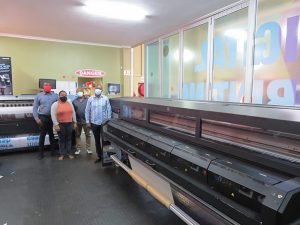
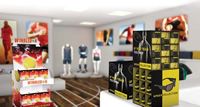
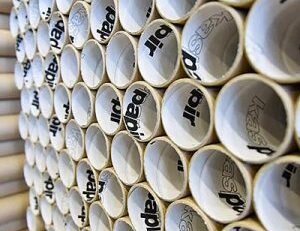
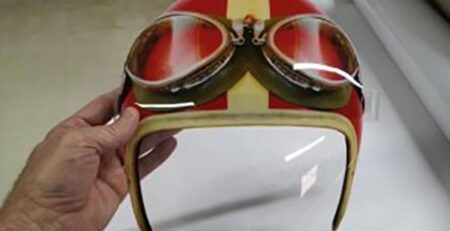
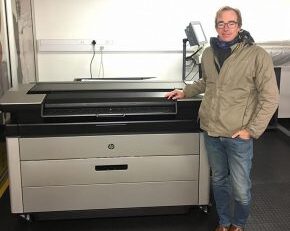
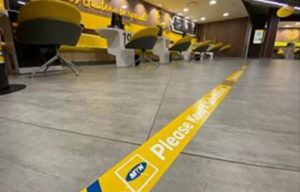
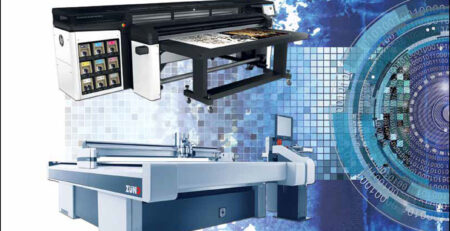
Leave a Reply